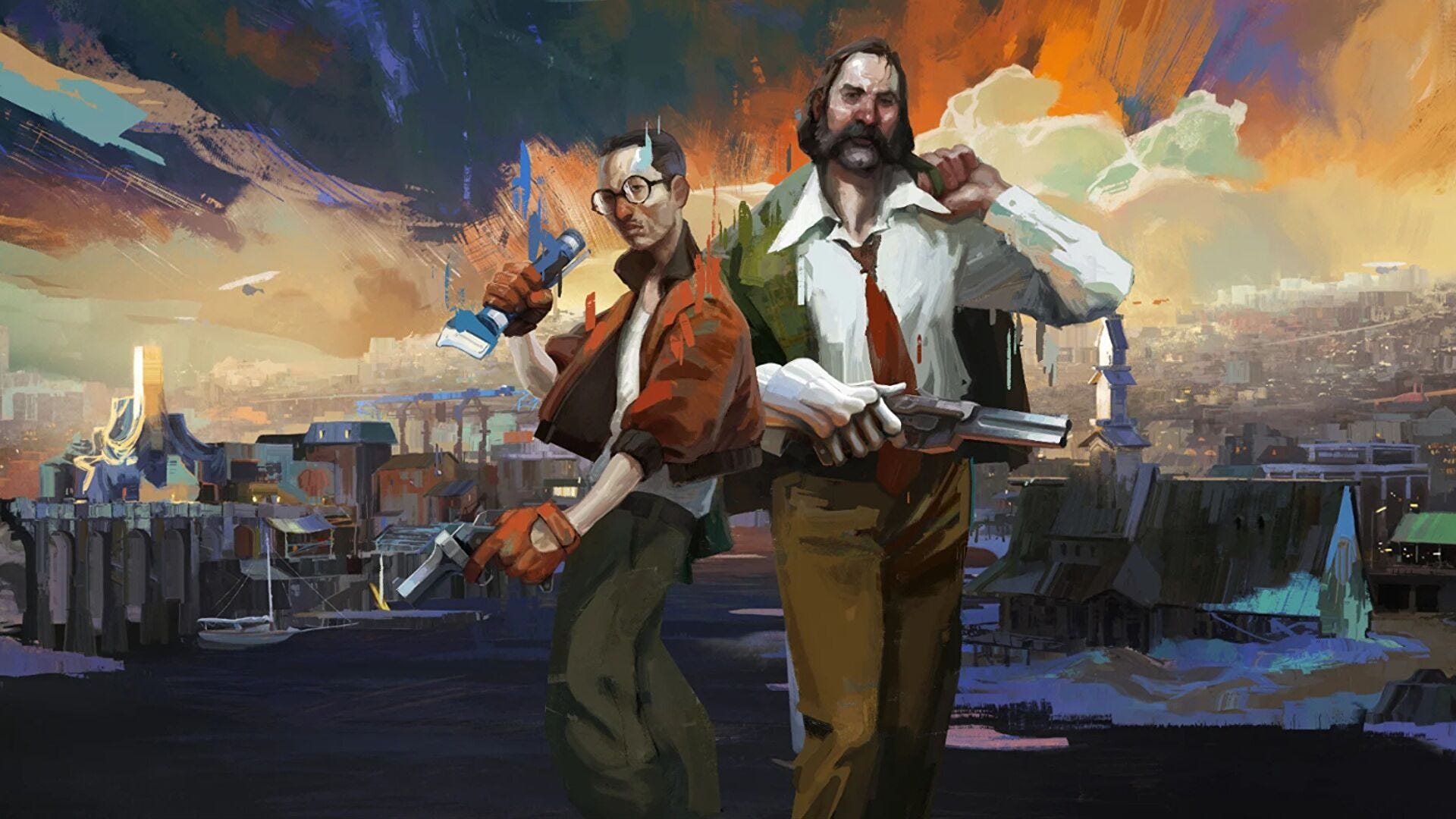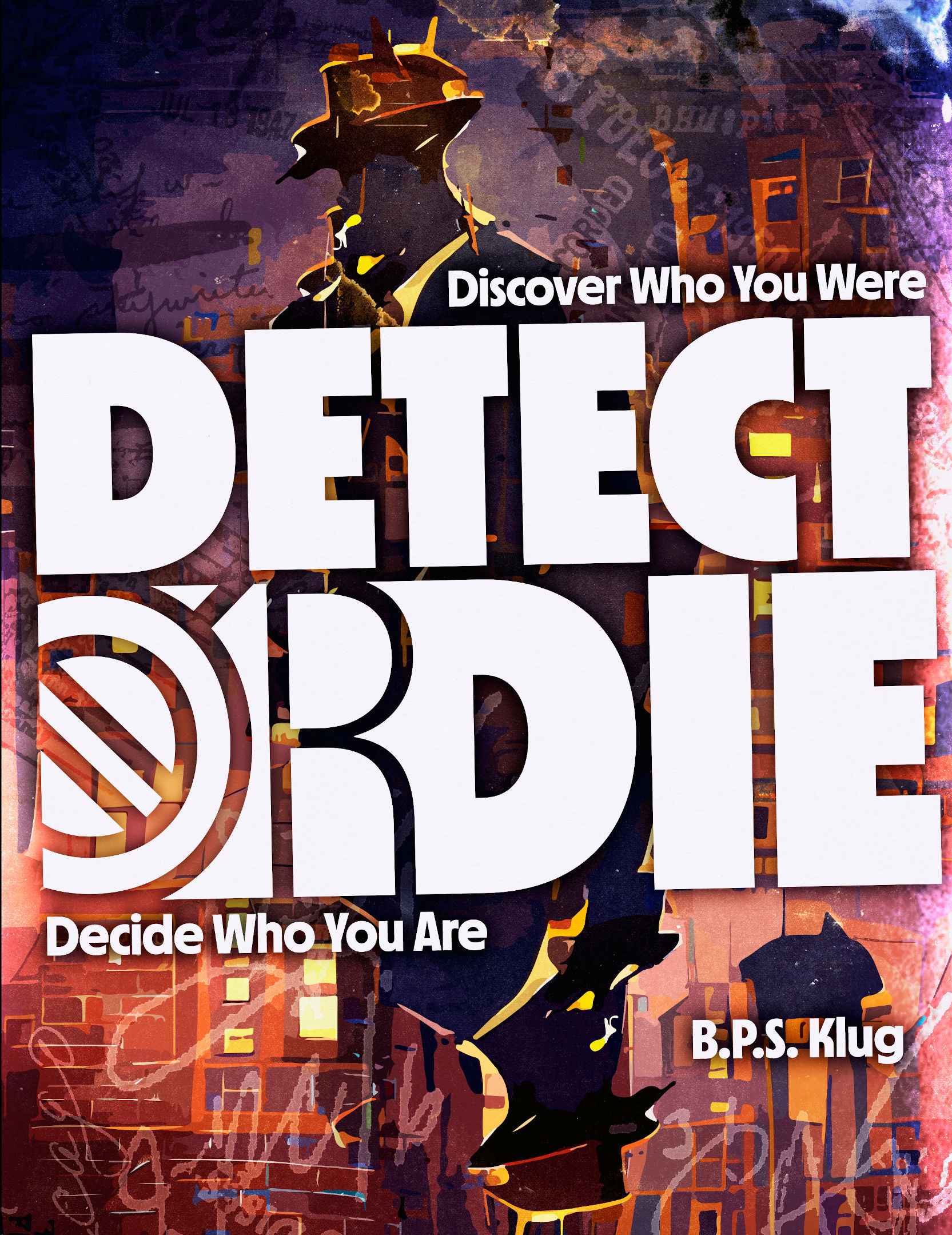Detect or Die - an indie noir experience
 |
| Image by B.P.S. Klug |
[4 min read]
The great thing about my local in-person tabletop roleplaying group is that we all take turns at running something interesting, which has led to a a variety of systems and experiences. We've played Blades in the Dark, Dungeon Crawl Classics, Microscope (I wasn't there for this one), Dune RPG and more recently an indie game that I was not expecting, Detect or Die, available on itch.io.
My play experience
This will be a shorter writeup of my impressions than those prior, since the adventure was played over only three 4-hour sessions, and I missed the second. Our group was composed of 3-5 players and the Game Master (GM), and I think the session with 5 players really best captured what the author was intending - a tug-of-war between the various parts of the protagonist's fractured psyche, each represented by a different player.
This game uses a modified version of the Powered by the Apocalypse engine that I found to be fairly rules-light and which ran very smoothly. The setting is a neo-noir world inspired by Blade Runner, or the break-out indie video game, Disco Elysium.
 |
| A detective story with retro future vibes, inspired by Disco Elysium Image by ZA/UM, courtesy of Eurogamer |
Our protagonist woke up in a hotel room on a retro futuristic world, with the aim of regaining our memory and solving the case of a missing colleague. Over the course of three sessions, our GM did a great job of drip feeding just enough information for us to solve the case, placing breadcrumbs through a decaying future-topia subject to rival factions, insidious technology, and misplaced personal ambition, culminating in a satisfying, albeit violent, conclusion.
What I liked
The core concept
Everyone playing as a part of the protagonist's mind is just a super cool concept! I played as The Ideals Guy, an idealist with the power to make certain checks easier if we could connect it back to the personal theme - which was in our case was "Transcendence Through Art". I was often in conflict with The Haruspex, a part of the mind focused on the supernatural and always searching for a conspiracy. Or, I was pleading with the other characters, such as The Egghead (the know-it-all type) or The Chiaroscuro (the emotionally intelligent investigator) to use my slogan when making skill checks.
The system
To restore memories or resolve conflict, we rolled often, but it didn't bog us down. We were just rolling two six-sided dice (2d6) adding or subtracting a modifier of -1 or +1 depending on the skills we picked, and looking for a total of 7-9 for a mixed success or 10+ for a full success. Morale and Déjà Vu are two meta-currencies that respectively govern if the character can act and also allow to buy mixed successes from a failed roll. Physical health is represented by injuries, gradually affecting rolls up to a -2 modifier at six injuries. There are some nuances to the system, but ultimately you're making skill checks to uncover memories and make progress on leads as you solve the case.
Concerns I had
One character sheet
Since you're all playing one protagonist, you actually only have one character sheet for the whole party. This takes some getting used to! Essentially we each had a print-out with our persona's description and its perks (special abilities) just to not forget, but if you wanted to roll on a particular skill you'd need to check in with the GM to know if there was a modifier or not. The skills have some of the most creative names I've come across (e.g. exofamiliarity - you have faith that the unknown too reflects your structure) but that also meant asking if it was appropriate for your line of questioning (something that would be alleviated the more you played). All-in-all the opacity made for a more authentic experience - we were playing parts of a fractured mind, after all.
 |
| Five players, one character sheet - check out the skill names! Character sheet from Detect or Die, B.P.S. Klug |
Group dynamics
I mentioned above that I felt the game played better with five players than three. Both sessions were fun, and satisfying, but I felt that with three players there was less conflict, and it was easier to agree on a course of action that advanced the story. It could have been the mix of different personalities and the characters they were playing too, but I liked the chaos of the larger group. If one wanted to rationalise this difference in meta-game terms, perhaps the smaller group with more cohesion at the finale of the case represented the protagonist zeroing in on the conclusion after a very confusing and overwhelming start?
In summary
After the Dune RPG, Detect or Die was a great palate cleanser, with a tight mystery to solve in a short amount of time. This indie TTRPG has a great core conceit, some clever concepts, sharp writing, all wrapped up in a cool noir vibe. If you like complex interplay between players and solving cases with limited rules to get in the way, you'll really like Detect or Die. Thanks to our GM for bringing us something original to try, it was great fun!

Comments
Post a Comment